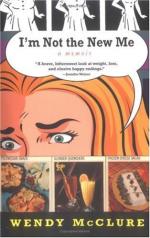It is in contemplating what the world loses in the deaths of brilliant young citizen soldiers that we appreciate most fully the waste of war and the priceless value of the cause for which such lives were sacrificed. When a man like Henri Regnault—the most substantial hope and promise of art in our century—is seen at the siege of Paris lingering behind his retreating comrades, “le temps de bruler une derniere cartouche” the last words he uttered; when a genius like Theodore Winthrop is extinguished in its ardent dawn on an obscure skirmish field; when a patriot and poet like Koerner dies in battle with his work hardly begun—we feel how inadequate are all the millions of the treasury to rival such offerings. We shall have no correct idea what our country is worth to us if we forget all the singing voices that were hushed, all the noble hearts that stopped beating, all the fiery energies that were quenched, that we might be citizens of the great and indivisible Republic of the Western world.
I believe that few men who fell in our civil conflict bore with them out of the world possibilities of fame and usefulness so bright or so important as Colonel Ephraim Elmer Ellsworth, who was killed at Alexandria, Virginia, on May 24, 1861—the first conspicuous victim of the war. The world can never compute, can hardly even guess, what was lost in his untimely end. He was killed by the first gun he ever heard fired in strife; and his friends, who believe him to have had in him the making of a great soldier, have nothing to support their opinion but the impression made upon them by his manly character, his winning and vigorous personality, and the extraordinary ardor and zest with which his powerful mind turned towards military affairs in the midst of circumstances of almost incredible difficulty and privation. He was one of the dearest of the friends of my youth. I cannot hope to enable the readers of this paper to see him as I saw him. No words can express the vivid brilliancy of his look and his speech, the swift and graceful energy of his bearing. He was not a scholar, yet his words were like martial music; in stature he was less than the medium size, yet his strength was extraordinary; he seemed made of tempered steel. His entire aspect breathed high ambition and daring. His jet-black curls, his open candid brow, his dark eyes, at once fiery and tender, his eagle profile, his mouth just shaded by the youthful growth that hid none of its powerful and delicate lines—the whole face, which seemed made for nothing less than the command of men, whether as general or as orator, comes before me as I write, with a look of indignant appeal to the future for the chance of fame which inexorable fate denied him. The appeal, of course, is in vain. Only a few men, now growing old, knew what he was and what he might have been if life had been spared him for a year or two. I will merely try to show in these few pages, mainly from his own words, how great a heart was broken by the slugs of the assassin at the Marshall House.




